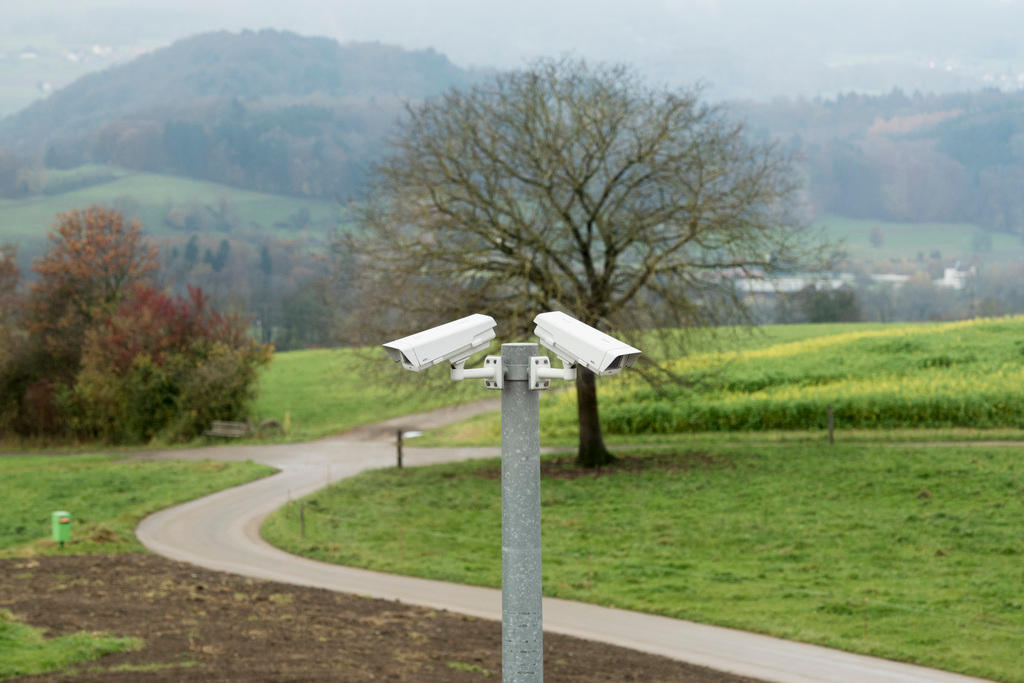
New surveillance powers seen as ‘leap of faith’

Who will watch the watchers? Following the decision by almost two-thirds of Swiss voters to allow the Federal Intelligence Service (FIS) to bug private phone lines and wiretap computers, Swiss newspapers have called on the government to keep a closer eye on the FIS and ensure it sticks to campaign promises.
“The broad approval of the intelligence law was not surprising, but it is noteworthy,” noted the Neue Zürcher Zeitung (NZZ) on Monday.
“The defensive reflex against state surveillance has traditionally been less pronounced in Switzerland than other countries,” it wrote.
“When it comes to Islamist radicalisation, the law now lets the authorities take a close look at people who have perhaps drifted into jihadism but who, until now, hadn’t done anything that would make them criminally liable. An improved risk analysis in cyberspace will also make the protection of critical infrastructure possible and help defend against industrial and economic espionage.”
The NZZ added, however, that voters had not given their consent for extravagant surveillance activity, pointing out that the FIS is limited in this respect by law and by assurances made during the vote campaign.

More
Secret service agents have licence to hack computers
“Although the FIS has been given additional powers, it remains comparatively small and those in charge must be clearly reminded that as hard as it was regaining the trust of citizens, this trust can be frittered away just as quickly.”
Opponents of the law had argued the privacy of citizens would be at risk if FIS agents were given additional powers, including bugging private property. They feared the authorities would collect huge amounts of data, which could lead to a “Big Brother” state surveillance system similar to the files scandal exposed in 1989 at the end of the Cold War era.
Do you trust your government?
The Tages-Anzeiger and Der Bund said that with the new law – which parliament said was necessary to combat terrorism and prevent the trade in arms – the public was being asked: do you trust your government and intelligence services to implement wide-reaching surveillance powers in a responsible manner?
“The government bought voters’ trust with two weighty promises. First, they assured them that the new powers would only be used in a dozen or so cases a year. Second, they promised to keep tabs on the FIS much closer than before,” it said.
“According to the law, around half a dozen committees will monitor the monitors, but all these committees will be worthless if the politicians and civil servants in them don’t take their jobs seriously. Following the voters’ leap of faith, it’s now up to the government and the FIS to prove that they deserve this faith.”
The Basler Zeitung agreed that Sunday was a good day for the FIS. “The electorate backed the FIS in larger numbers than expected. With the clear Yes, the FIS has been given the means that will enable it to carry out its political remit. The majority of voters thus recognised the unsatisfactory situation in which the FIS was being asked to flag up dangers in time but without even being able to listen in to telephone calls to identify terrorist plots,” it wrote.
Yesterday’s decision rectified this, it said. “The FIS must now focus on people, find out where the dangerous ones are so that – at the decisive moment – the right ones can be ‘withdrawn from circulation’”.
‘No freedom without security’
Editorialists in the French-speaking part of the country focused on the decision to reject raising pension payments – voters in French- and Italian-speaking Switzerland had actually backed the initiative – but some papers still commented on the intelligence law vote.
“This overwhelming victory can be explained above all by the bloody international context on Switzerland’s doorstep. Paris, Brussels, Nice – cities scarred by attacks etched into people’s minds,” said 24 Heures in Lausanne.
“Facing the Islamist threat, the Swiss have decided to beef up their secret services, whose range of actions had previously been far too limited. Critics had cried in vain of an exaggerated violation of the private sphere and of the threat of mass surveillance as practised in the United States, but the Swiss vote can be summed up like this: ISIS has defeated Snowden,” it concluded, referring to former CIA employee Edward Snowden, who revealed alleged illegal spying activities by the US in Europe and Switzerland.
In Italian-speaking Switzerland, the Corriere del Ticino said the “ideological campaign” waged by opponents had “failed beyond expectations”.
“Echoes of the files scandal, the rejection by parliament only seven years ago of an attempt to give the intelligence services more powers and the facile argument of a ‘Big Brother state’ led one to expect a less marked result,” it wrote.
“But two-thirds of voters endorsed the idea that there’s no freedom without security.”

In compliance with the JTI standards
More: SWI swissinfo.ch certified by the Journalism Trust Initiative






























You can find an overview of ongoing debates with our journalists here . Please join us!
If you want to start a conversation about a topic raised in this article or want to report factual errors, email us at english@swissinfo.ch.